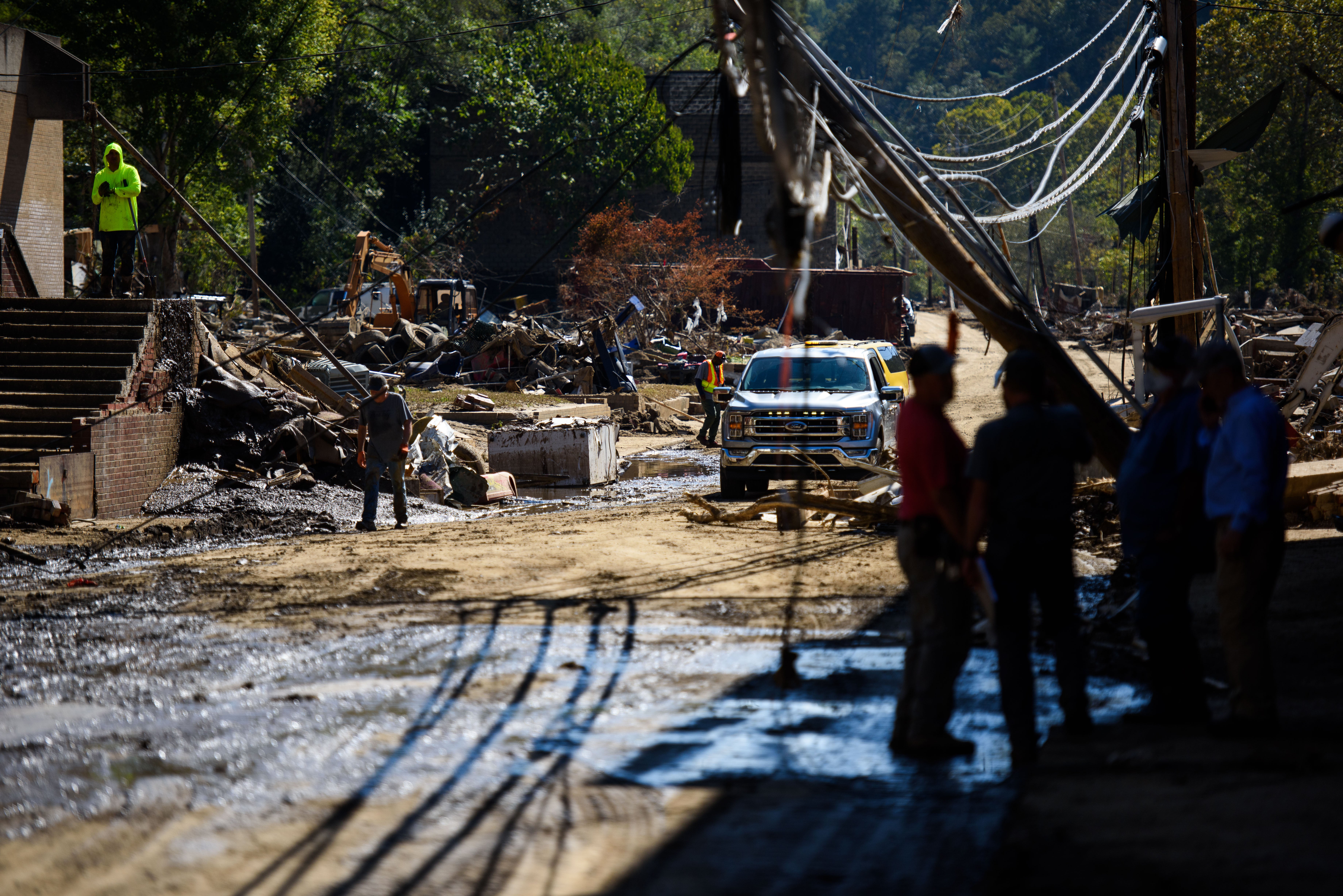
Employees of the Federal Emergency Management Agency (FEMA) warned Monday that the nation’s top disaster relief agency is acting to reverse critical progress it’s made in the two decades since Hurricane Katrina struck New Orleans, with potentially dangerous consequences.
More than 180 people signed an open letter to Congress to oppose what they alleged was a reduction in FEMA’s capability to perform its missions, including the elimination of life-saving risk management and preparedness programs, the depletion of FEMA’s workforce, and the “censorship” of climate science and environmental protection to the detriment of the American people.
They said they hoped their letter came in time to prevent another national catastrophe similar to Katrina, as well as the dissolution of FEMA itself.
Hurricane Katrina, one of the deadliest hurricanes ever to hit the U.S., took the lives of nearly 1,400 people after levees failed around New Orleans in 2005. Federal response to the disaster has been criticized in the years since, including the actions of FEMA’s leadership at the time.
“Our shared commitment to our country, our oaths of office, and our mission of helping people before, during, and after disasters compel us to warn Congress and the American people of the cascading effects of decisions made by the current administration,” the employees, 146 of whom signed anonymously, said.
A third of FEMA’s full-time staff have left the agency, the signees noted, resulting in the loss of “irreplaceable institutional knowledge and long-built relationships.” They also pointed to the sudden termination of a pre-disaster mitigation program, and said they opposed the “ongoing failure to appoint a qualified FEMA administrator” with the 2025 hurricane season well underway.
The letter called on Congress to establish FEMA as an independent agency in the executive branch, defend the agency from “further interference” from the Department of Homeland Security, protect employees from “politically motivated firings,” and to demand transparency regarding internal employment policies and future agency reductions.
“Decisions made by FEMA’s Senior Official Performing the Duties of the Administrator (SOPDA) David Richardson, Former SOPDA Cameron Hamilton, and Secretary of Homeland Security Kristi Noem erode the capacity of FEMA and our State, Local, Tribal, and Territorial (SLTT) partners, hinder the swift execution of our mission, and dismiss experienced staff whose institutional knowledge and relationships are vital to ensure effective emergency management,” the employees said.
A request for comment on these allegations from the White House was not immediately returned to The Independent.
In matching statements, FEMA Acting Press Secretary Daniel Llargues and a spokesperson for the Department of Homeland Security both told The Independent that the department was committed to “ensuring FEMA delivers for the American people.”
“For too long, FEMA was bogged down by red tape, inefficiency, and outdated processes that failed to get disaster dollars into survivors’ hands,” they said, pointing to billions of dollars that had been delivered by Homeland Security in individual and public assistance.
“It is not surprising that some of the same bureaucrats who presided over decades of inefficiency are now objecting to reform,” Llargues and the spokesperson said. “…Americans deserve better than the slow, inadequate disaster responses of the past. Thanks to Secretary Noem’s leadership, FEMA is turning the page and becoming the accountable, deployable disaster force the American people deserve.”
Historically, FEMA has helped communities to rebuild following disasters, providing immediate assistance to individuals and coordinating with state and local officials. It has also provided grants to help mitigate hazards.
Both Noem and President Donald Trump have floated the idea of remaking or dismantling FEMA. Noem is a co-chair of a council to recommend changes at the agency. Trump has said that changes he’d want to see would leave FEMA’s share of disaster response to the states. The White House has since said no official action is being taken to wind down FEMA. Changes would amount to a “rebranding,” an administration spokesperson told The Washington Post in July.
What all of this would actually mean remains to be seen, but dismantling or changing the agency’s responsibilities would require action from Congress. That includes amending the 1988 Stafford Act, which outlines FEMA’s responsibilities and the cost share between the federal government and the states.

The administration’s proposals have been blasted by climate experts, politicians, and hurricane survivors.
Giving less federal support could put an unsustainable financial burden on states, Sara McTarnaghan, principal research associate at the Urban Institute, told The Associated Press.
“Very few of them would have had enough funds set aside to anticipate the federal government stepping back from its historic role in disaster recovery for major events,” she said.
The conversation about FEMA’s future comes as the number of billion-dollar natural disasters has significantly increased. There were just three of those events a year in the 1980s and there have been 19 annually during the last decade, according to non-profit Climate Central. Katrina was one of the costliest hurricanes ever to strike the U.S., but that was 20 years ago.
Since then, human-caused climate change has resulted in supercharged storms, making the record ocean temperatures along Hurricane Helene’s Atlantic path six to 500 times more likely, Climate Central said.
“We can’t carry the load alone — nor should we be expected to,” three Hurricane Helene survivors said in a joint statement shared by the Sierra Club. “To lay the burden solely at the feet of survivors and states is shortsighted and ignores the need for a responsive, functional, and caring federal system that prioritizes those of us who have lost so much.”



